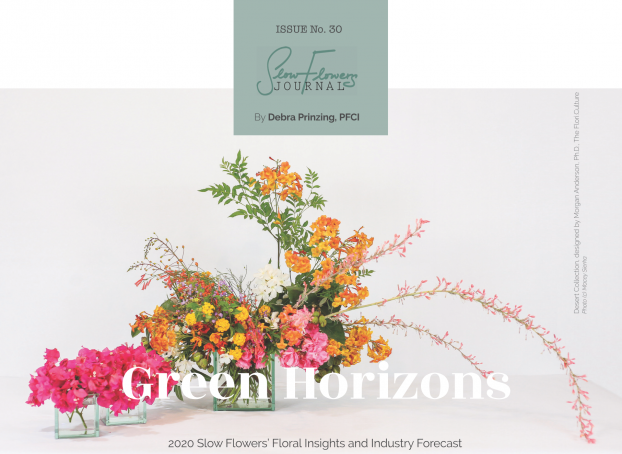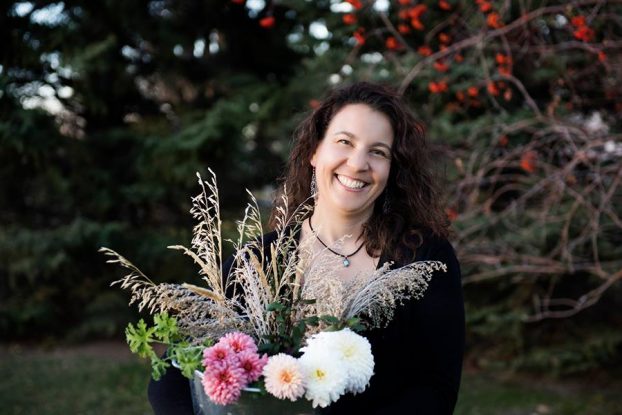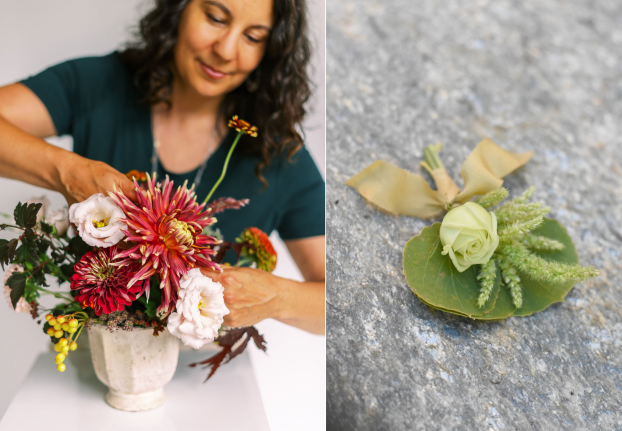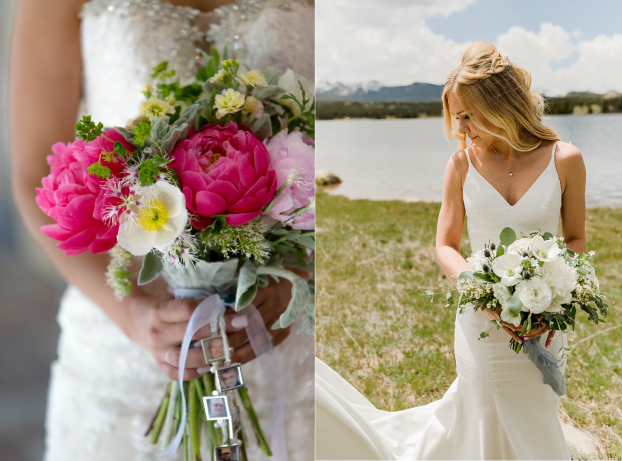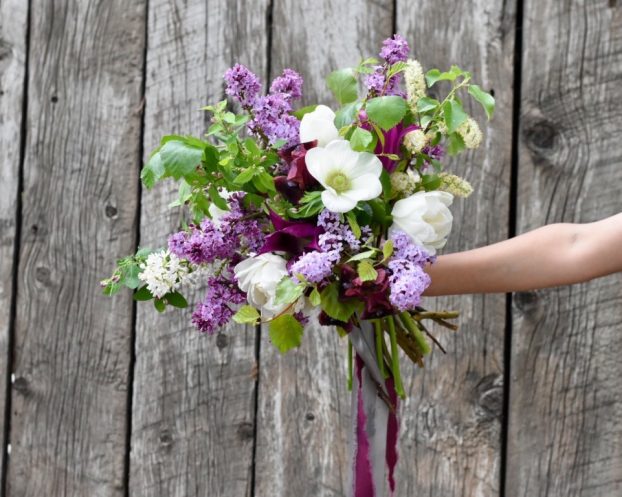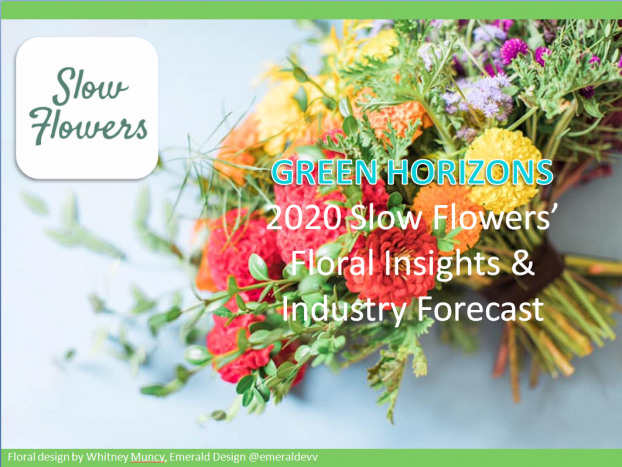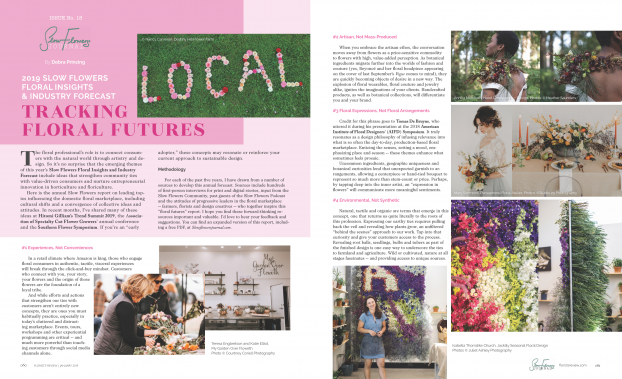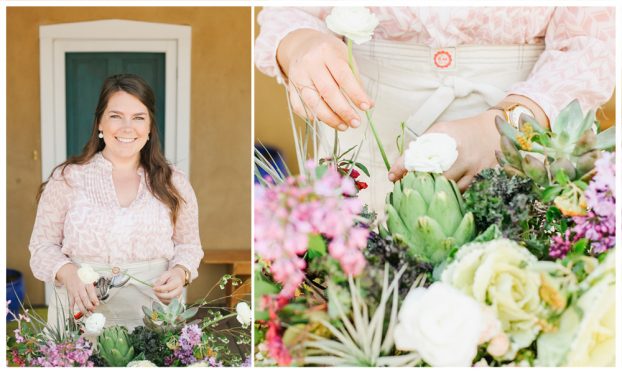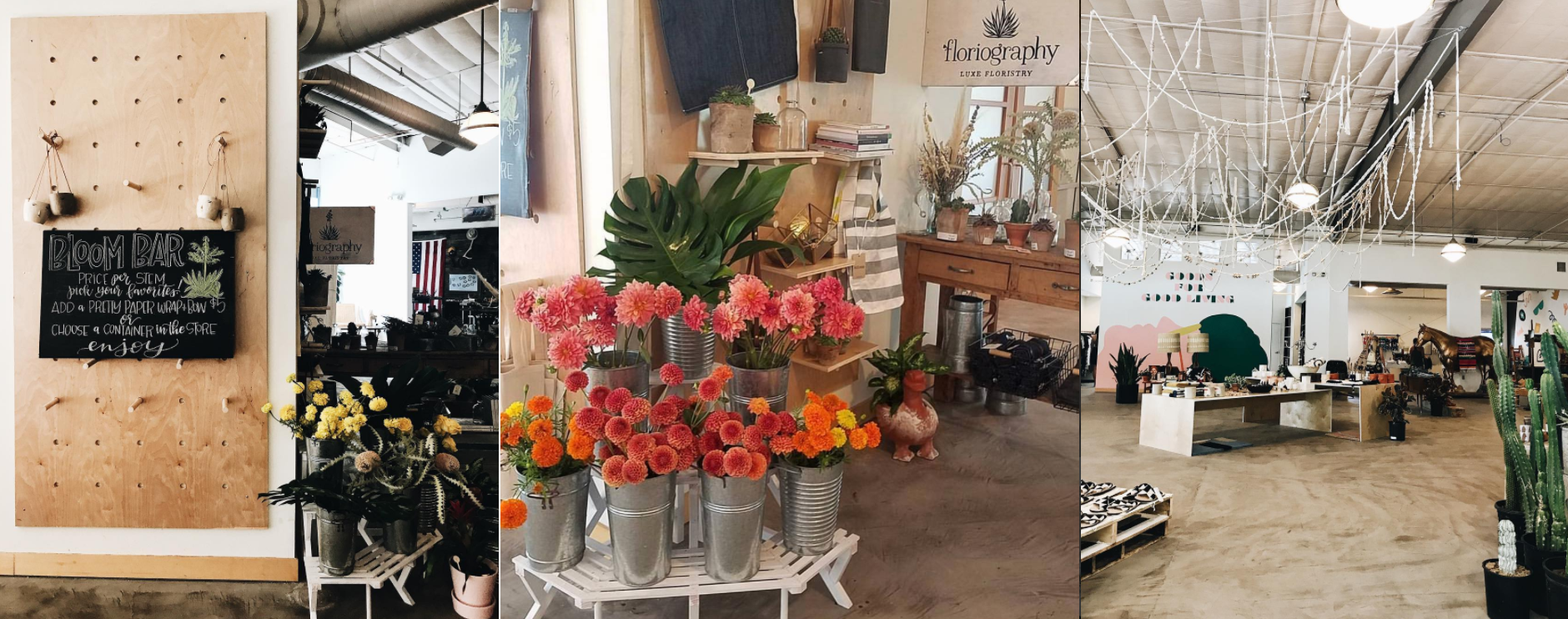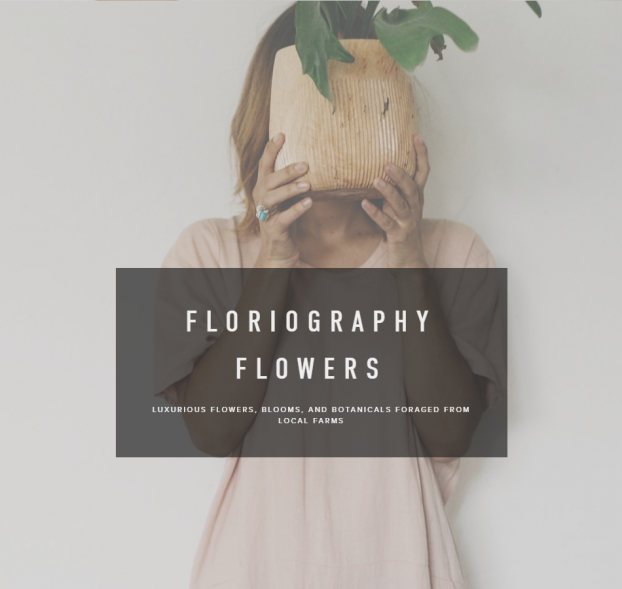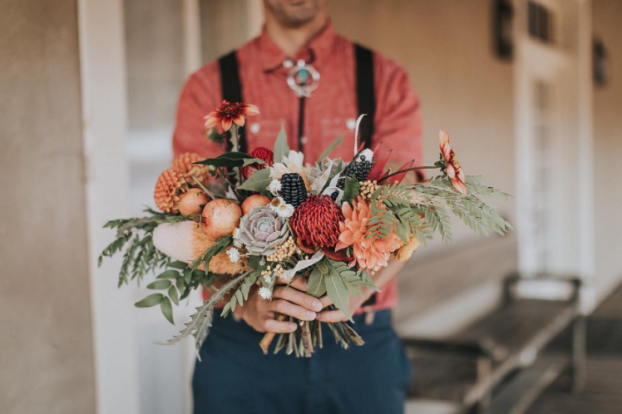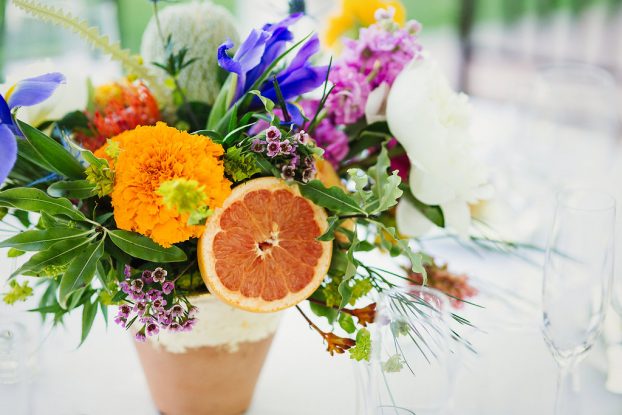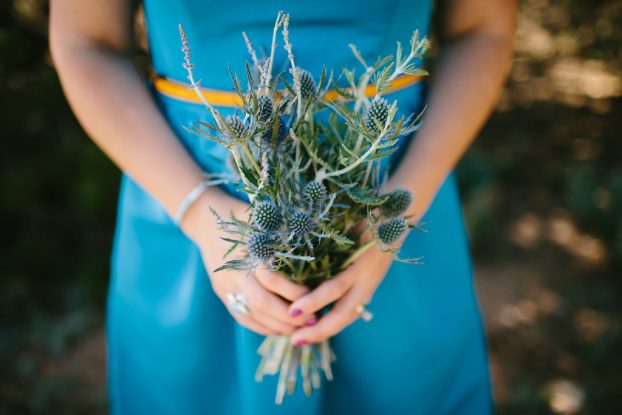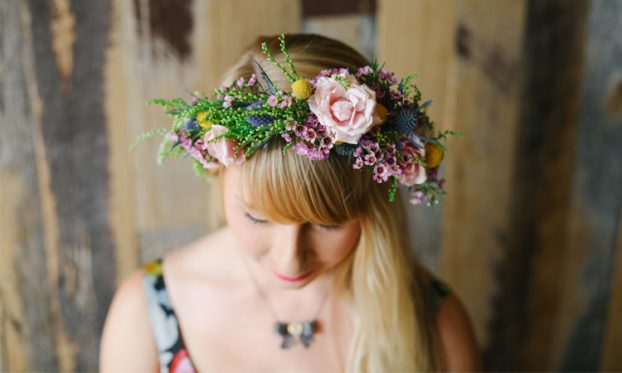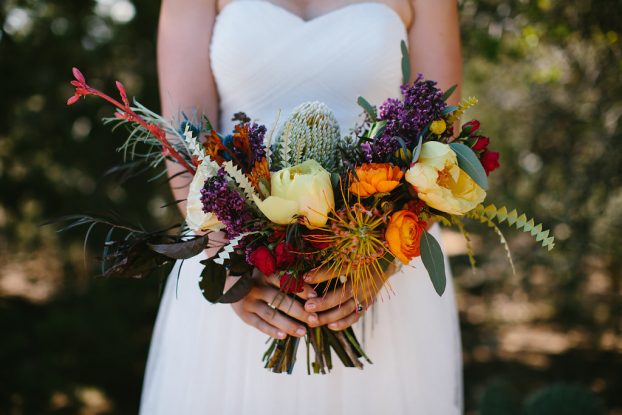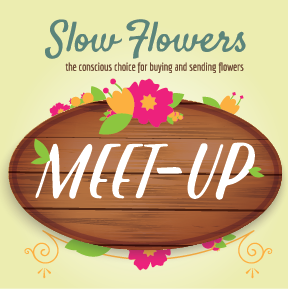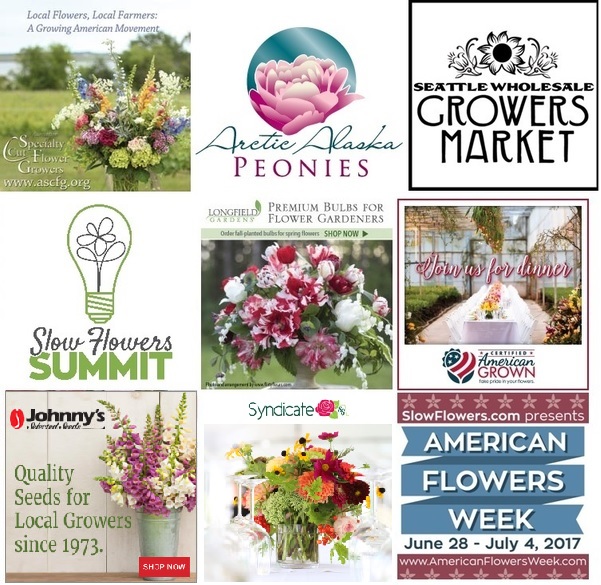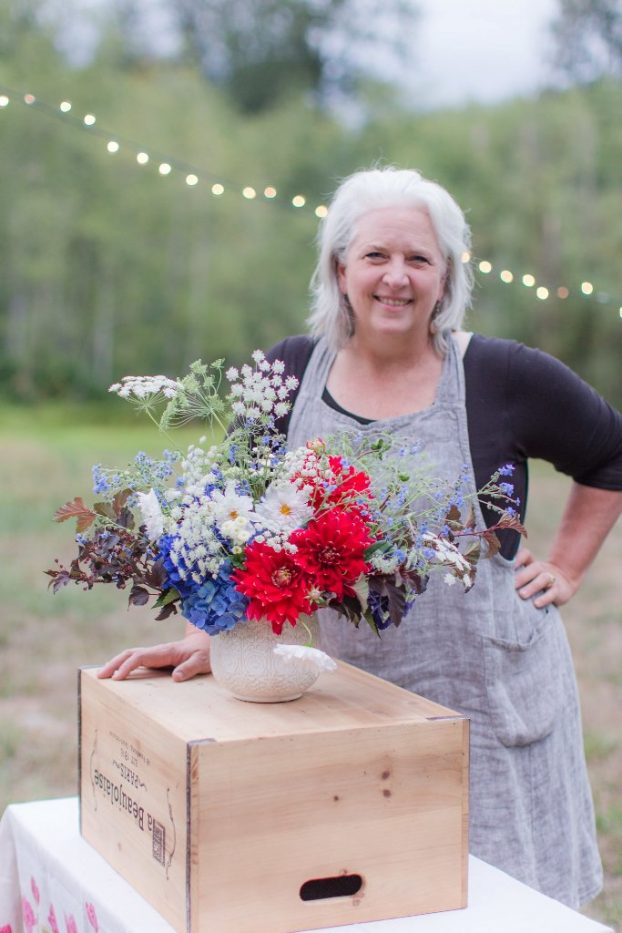Podcast: Play in new window | Download
Subscribe: Apple Podcasts | Podcast Index | RSS | More
It’s great to be here today to share our 8th consecutive floral forecast for the Slow Flowers community. The audio you’ll hear was recorded during our Monthly Member Meet up on January 14th and those who attended got an early, sneak peek at the report. We recorded the session and I’m sharing the edited version with you today.
This report has become an important gauge for our members, as well as for the greater floral marketplace and business media, as we evaluate prevailing cultural shifts, notable changes, and breakout ideas influencing flower farming, floral design and consumer attitudes about flowers.
The Slow Flowers Floral Insights and Industry Forecast debuted in December 2014 when I first compiled my top predictions for 2015 and shared them with the media and the floral profession. The Forecast continued through 2021, as I gathered intelligence over the course of each year, conducting hundreds of magazine and podcast interviews, and soliciting feedback through the annual Slow Flowers member survey.
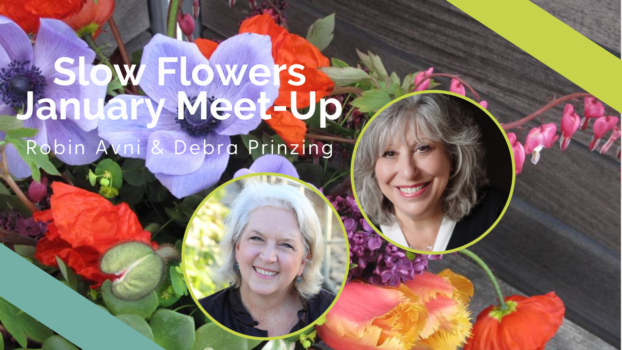
For 2022, I’m so pleased to be joined in this endeavor by Bloom Imprint’s creative director Robin Avni. Robin has contributed her unique point of view and expertise in developing this year’s forecast with Slow Flowers — and much of what I’ve learned about forecasting has come from past collaborations with Robin. Robin has successfully managed innovative, award-winning teams and high-profile projects as well as receiving numerous national design awards. She has worked with Fortune 500 companies, national advertising agencies and award-winning media properties, applying timely lifestyle insights to their businesses.
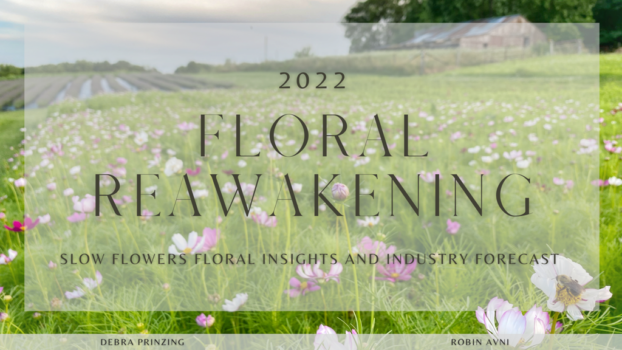
I want to get right to the juicy parts of our presentation, so let’s jump right in and learn about 2022’s Floral Reawakening. Download a recap of this REPORT: Slow Flowers Floral Insights & Industry Forecast for 2022.
There is so much to unpack in the nine insights we’ve discussed today and so you can expect to hear more as I dig deeper into these themes and the people in the Slow Flowers Community who are leading these major shifts and who can speak to us for extended stories and interviews. And please reach out to let me know what you think about them! You can always write to debra@slowflowers.com.

I can’t believe we’re already at the end of January — it has been an insanely rapid start to a New Year, one with continued uncertainty about our health, our communities and our planet. I believe we are stronger together when we can draw inspiration and comfort from one another.
I hope to see many of you in the coming weeks, as I host six of our members who will be teaching at the upcoming Northwest Flower & Garden Festival, February 9-13, in Seattle at the Washington State Convention Center. Slow Flowers Society is again producing the Blooms & Bubbles Workshops with some fantastic presenters — all Slow Flowers members, including Bethany Little of Charles Little & Co., Beth Syphers of Crowley House, Kiara Hancock of K. Hancock Events, Kim Gruetter & Tonneli Gruetter of Salty Acres Farm and Tobey Nelson of Tobey Nelson Events.
Head’s up because Next Week, we’ll have our ticket giveaway for five sets of two tickets to attend the flower show as my guest. You can also find the details starting February 1st at @slowflowerssociety on IG.
Thank you to our Sponsors!
This show is brought to you by Slowflowers.com, the free, online directory to more than 880 florists, shops, and studios who design with local, seasonal and sustainable flowers and to the farms that grow those blooms. It’s the conscious choice for buying and sending flowers.
Thank you to our lead sponsor, returning for 2022, Farmgirl Flowers. Farmgirl Flowers delivers iconic burlap-wrapped bouquets and lush, abundant arrangements to customers across the U.S., supporting U.S. flower farms by purchasing more than $10 million dollars of U.S.-grown fresh and seasonal flowers and foliage annually. Discover more at farmgirlflowers.com.
Thank you to Johnny’s Selected Seeds, an employee-owned company that provides our industry the best flower, herb and vegetable seeds — supplied to farms large and small and even backyard cutting gardens like mine. Find the full catalog of flower seeds and bulbs at johnnysseeds.com.
Thank you to Mayesh Wholesale Florist. Family-owned since 1978, Mayesh is the premier wedding and event supplier in the U.S. and we’re thrilled to partner with Mayesh to promote local and domestic flowers, which they source from farms large and small around the U.S. Learn more at mayesh.com.
Thank you to The Gardener’s Workshop, which offers a full curriculum of online education for flower farmers and farmer-florists. Online education is more important than ever, and you’ll want to check out the course offerings at thegardenersworkshop.com.
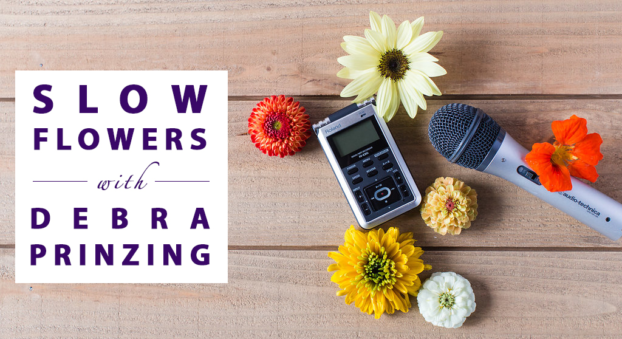
Thanks so much for joining us today! The Slow Flowers Podcast is a member-supported endeavor, downloaded more than 808,000 times by listeners like you. Thank you for listening, commenting and sharing – it means so much. As our movement gains more supporters and more passionate participants who believe in the importance of our domestic cut flower industry, the momentum is contagious. I know you feel it, too.
If you’re new to our weekly Show and our long-running Podcast, check out all of our resources at Slow Flowers Society.com and consider making a donation to sustain Slow Flowers’ ongoing advocacy, education and outreach activities. You can find the donate button in the column to the right at debraprinzing.com
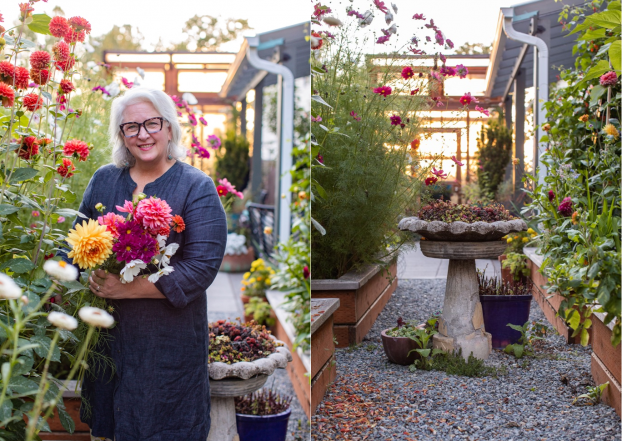
I’m Debra Prinzing, host and producer of the Slow Flowers Show & Podcast. Next week, you’re invited to join me in putting more Slow Flowers on the table, one stem, one vase at a time. The content and opinions expressed here are either mine alone or those of my guests alone, independent of any podcast sponsor or other person, company or organization.
The Slow Flowers Podcast is engineered and edited by Andrew Brenlan. You can learn more about Andrew’s work at soundbodymovement.com.
Music Credits:
Lissa; Turning on the Lights; Gaena
by Blue Dot Sessions
http://www.sessions.blue
Lovely
by Tryad
http://tryad.bandcamp.com/album/instrumentals
http://creativecommons.org/licenses/by-sa/3.0/
In The Field
audionautix.com










